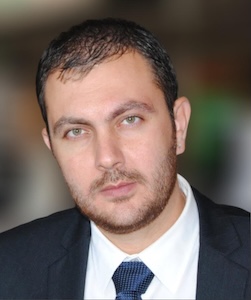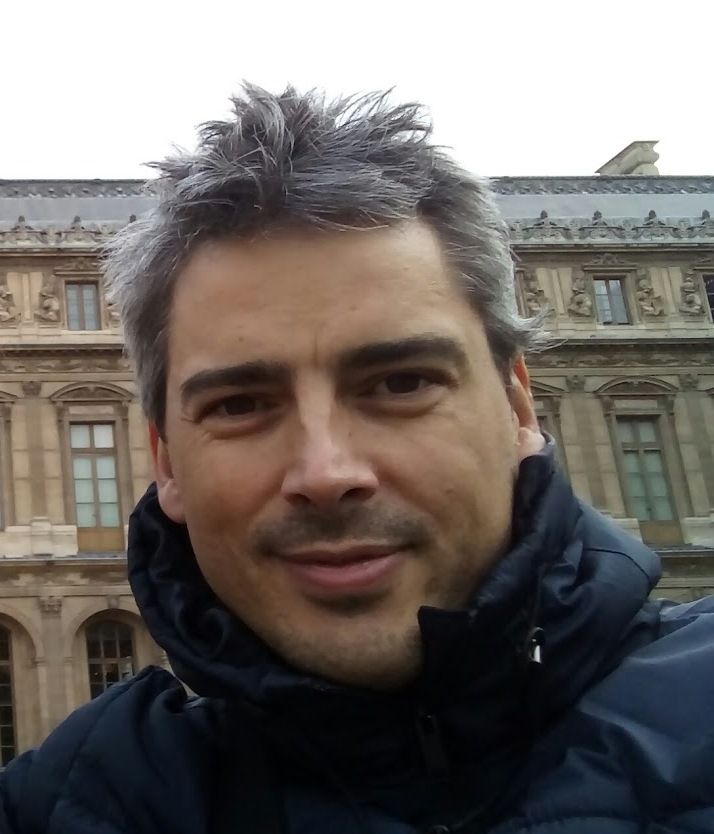Gaetano Carmelo La Delfa
Marie Skłodowska-Curie Postdoctoral Fellow at BISITE Research Group
University of Salamanca, Spain

BIO: Dr. Gaetano Carmelo La Delfa is a Marie Skłodowska-Curie Postdoctoral Fellow at the University of Salamanca, Spain, within the BISITE Research Group.
He previously served as a Research Fellow and fixed term Researcher at the University of Catania, Italy, teaching Health Informatics, tutoring several courses, supervising M.Sc. and Ph.D. candidates and contributing to various national and international projects in the context of indoor localization, smart cities, Internet of Things and resilient infrastructures. His current research focuses on optimizing last-mile delivery through machine learning and on developing advanced indoor localization systems.
Dr. La Delfa earned a second-level Master’s degree in Methodologies and Technologies for Developing Applications for Mobile Systems at University of Catania (Italy) in 2012 and a Ph.D. in Computer Engineering at the same university in 2016, with a dissertation on hybrid indoor localization systems. In 2018 he won a scholarship to participate to the advanced 18-month training project “SENTI - Electronic Sensors, Nano Technologies, Information Technology for precision agriculture” at National Research Council - Institute of Cognitive Sciences and Technologies (CNR-ISTC) of Catania, focused on ICT for archiving and processing big data, linked open data, Semantic Web, Machine Learning.
Dr. La Delfa has authored several peer-reviewed publications in top-tier journals such as the IEEE Internet of Things Journal and Computers and Electrical Engineering. He actively contributes to international scientific communities, such as IEEE/ACM NoCArc series, and Blockchain25. He is Guest Editor of the MDPI Electronics special issue “IoT-Enhanced Localization”. Beyond academia, Dr. La Delfa is an active iOS and Android Developer, with various native and cross-platform apps and games on both the Apple App Store and Google Play, downloaded, as of today, millions of times.
Speech Title: Intelligent Logistics for Smart Cities: Optimizing Last Mile Deliveries with AI and IoT
Abstract: With the exponential growth of e-commerce and shifting consumer expectations towards faster and more flexible deliveries, the optimization of last mile delivery logistics has emerged as one of the most complex, expensive and rapidly evolving segments within modern supply chains. Particularly within urban environments, this critical logistics stage can represent up to 41% of the total logistics costs. The talk explores the main challenges that last mile delivery Introduces and provides an overview of innovative strategies and technological solutions currently being explored to address these challenges. A central focus of the discussion will be the Vehicle Routing Problem (VRP) and its numerous practical variants, which serve as foundational frameworks for optimizing delivery routes. We will briefly survey both traditional optimization methods, such as exact algorithms and heuristic approaches, and explore emerging machine learning-driven techniques. The talk will end by describing smartDelivery, a research project that combines IoT technologies, Machine Learning and Operational Research for more intelligent routing decisions, aiming to build smarter and more efficient urban logistics systems.
Marin Lujak
King Juan Carlos University, Spain

BIO: Marin Lujak is an Associate Professor of Computational Science and Artificial Intelligence at Rey Juan Carlos University (URJC) in Madrid, specializing in distributed and decentralized methodologies for the coordination of complex multi-agent systems. He holds a PhD from the University of Rome Tor Vergata (Italy) and has also served as an Associate Professor at IMT Lille Douai (University of Lille, France). He has authored over 80 peer-reviewed scientific publications, and his research focuses on intelligent transportation, emergency management, and autonomous robotics. He has held leadership roles in scientific associations such as EURAMAS (European Association for Multi-Agent Systems), serves as both associate and guest editor for prestigious international journals, and has been actively involved in organizing and reviewing more than 100 international conferences. He has also served as a reviewer for Research Agencies in Spain, France, Croatia, and Italy.
Speech Title: Learning-Driven Dynamic Task Allocation in Multi-Agent Systems: Toward Cooperative and Optimized Nash Equilibria
Abstract: This talk presents the Dynamic and Cooperative Multi-Agent Task Allocation (DC-MATA) problem, where self-interested agents repeatedly divide tasks, whose utilities evolve over time [1]. We cast DC-MATA as a Markov Decision Process and use reinforcement learning to steer agents toward Nash equilibria that approach system-optimal performance. Our solution includes a priority-sensitive reward function and four action-sampling algorithms: ε-greedy, ε-decay, Adapted Simulated Annealing, and Prior Sequence-Aware Sampling (PSAS). These methods guide agents in selecting task execution orders that balance immediate utility with long-term system performance. Simulation results on newly developed benchmark instances demonstrate that the DC-MATA approach yields robust, scalable performance and significantly reduces the gap between individual agent behaviour and system-optimal solutions. DC-MATA is a novel learning-based contribution to cooperative multi-agent coordination in dynamic environments such as intelligent transportation, emergency response, and autonomous robotics.
Victor Alves
University of Minho, Portugal

BIO: Victor Alves is an Associate Professor in the Department of Informatics at the School of Engineering, University of Minho and Researcher at ALGORITMI/LASI. He is an expert in Medical Imaging Informatics, specializing in modeling imaging modalities and developing human-machine methods to improve clinical diagnosis and care. His research includes the use of deep learning for brain tumor analysis, radiomics for cancer outcome prediction, and 3D reconstruction techniques for cranial implants. He also focuses on making deep learning models interpretable and analyzing brain connectivity through MRI data. He has developed several practical software tools for medical imaging and endoscopy, emphasizing the application of research to real-world healthcare challenges.
Speech Title: The Scientific Challenges and Opportunities of Artificial Intelligencein Medical Imaging
Abstract: The presentation, "The Scientific Challenges and Opportunities of Artificial Intelligence in Medical Imaging," examines the transformative impact of AI—particularly machine learning and deep learning—across the evolution of medical imaging technologies such as X-rays, CT, and MRI. It highlights the rapid expansion of AI research in this field and explores how these technologies are being used to assist in the diagnosis of medical images, with special attention to the importance of high-quality training data and the unique challenges posed by volumetric imaging and brain studies. The talk further addresses key research priorities, including enhancing the interpretability of AI models, integrating multimodal data, and ensuring robust validation. It also considers significant barriers to the adoption of AI in radiology, such as data privacy, regulatory concerns, costs, and acceptance among radiologists. Ultimately, the presentation underscores AI’s potential to augment radiologists’ capabilities, improve diagnostic accuracy, and advance patient care, while emphasizing the need to overcome ongoing scientific and practical challenges.
